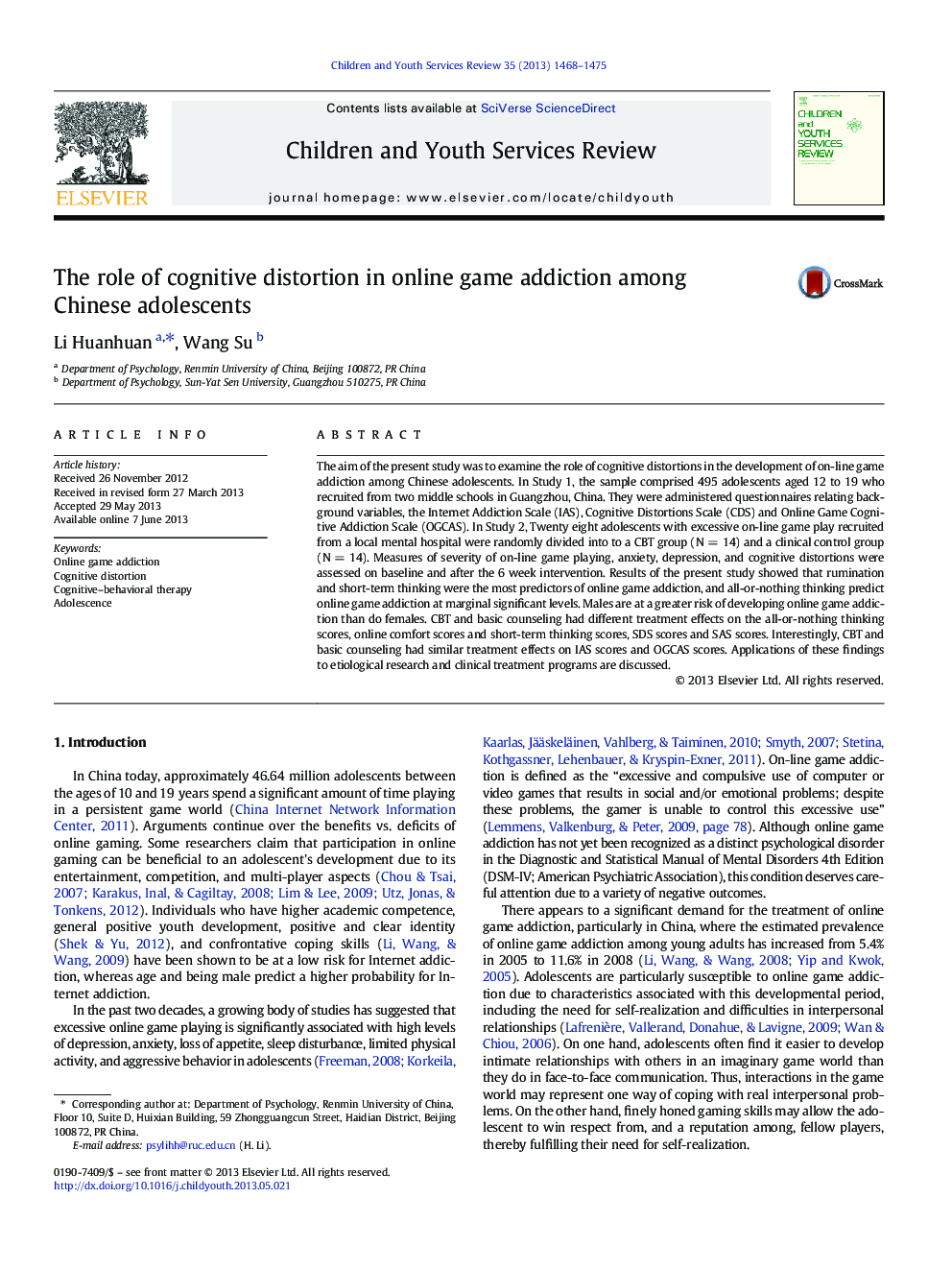| Article ID | Journal | Published Year | Pages | File Type |
|---|---|---|---|---|
| 10311610 | Children and Youth Services Review | 2013 | 8 Pages |
Abstract
The aim of the present study was to examine the role of cognitive distortions in the development of on-line game addiction among Chinese adolescents. In Study 1, the sample comprised 495 adolescents aged 12 to 19 who recruited from two middle schools in Guangzhou, China. They were administered questionnaires relating background variables, the Internet Addiction Scale (IAS), Cognitive Distortions Scale (CDS) and Online Game Cognitive Addiction Scale (OGCAS). In Study 2, Twenty eight adolescents with excessive on-line game play recruited from a local mental hospital were randomly divided into to a CBT group (NÂ =Â 14) and a clinical control group (NÂ =Â 14). Measures of severity of on-line game playing, anxiety, depression, and cognitive distortions were assessed on baseline and after the 6Â week intervention. Results of the present study showed that rumination and short-term thinking were the most predictors of online game addiction, and all-or-nothing thinking predict online game addiction at marginal significant levels. Males are at a greater risk of developing online game addiction than do females. CBT and basic counseling had different treatment effects on the all-or-nothing thinking scores, online comfort scores and short-term thinking scores, SDS scores and SAS scores. Interestingly, CBT and basic counseling had similar treatment effects on IAS scores and OGCAS scores. Applications of these findings to etiological research and clinical treatment programs are discussed.
Related Topics
Health Sciences
Medicine and Dentistry
Perinatology, Pediatrics and Child Health
Authors
Li Huanhuan, Wang Su,
